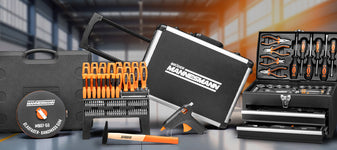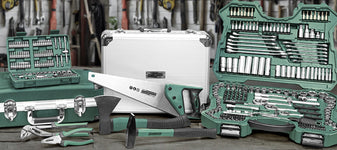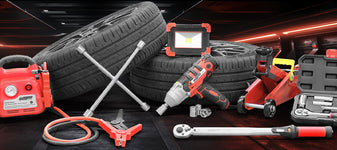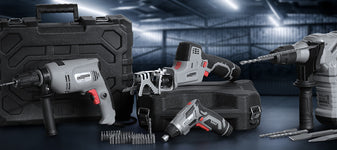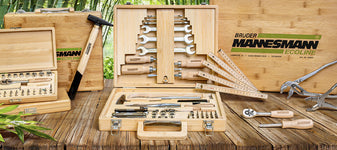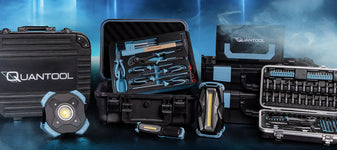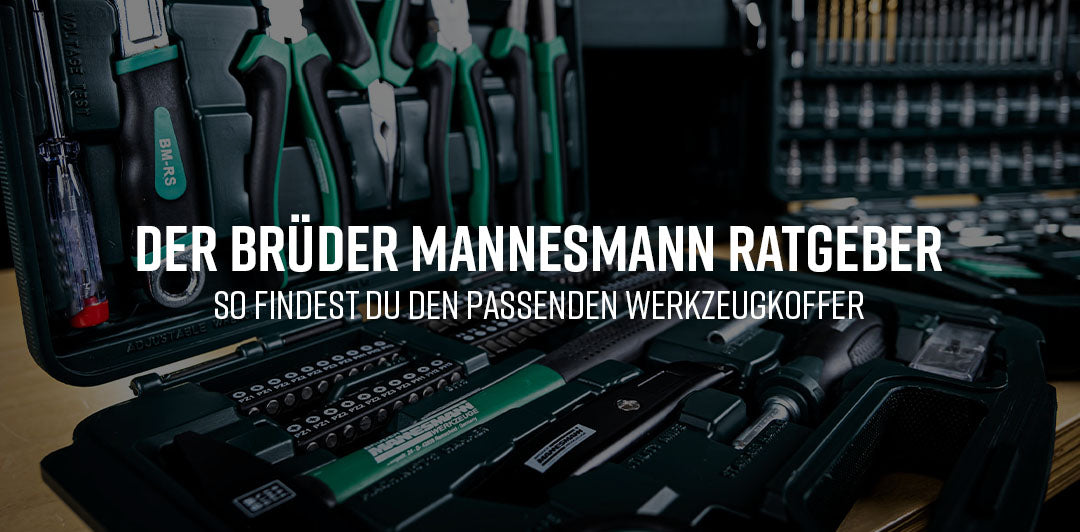Setting up your own workshop is a dream for many DIY enthusiasts. Whether for crafting, repairs, or creative DIY projects, with proper planning and a solid basic setup, any basement, shed, or hobby room can become a functional workshop. In this guide, you'll learn which tools are essential, which complete sets make getting started easier, and which accessories will make your workshop more comfortable and safer.
1. Planning: How to set up your workshop sensibly
Before you buy tools or set up the workbench, it's worth doing some careful planning:
-
Room size and space requirements : Consider what kind of work you plan to do regularly. A woodworking shop will require more space than an electronics workstation.
-
Layout & Walkways : Plan enough space to work without constantly tripping over cables or materials.
-
Power supply : Outlets within easy reach are invaluable. Alternatively, cable reels or power strips with surge protection can help.
-
Lighting : Bright LED lamps and spot work lights ensure precise and safe work.
2. Basic workshop equipment: These tools should not be missing
The foundation of every DIY workshop is a solid set of tools. You should definitely have these basics:
-
Hammer (e.g. locksmith hammer, rubber hammer)
-
Screwdrivers in various sizes and designs
-
Combination, flat and needle-nose pliers
-
Cordless screwdriver or drill driver
-
Tape measure, spirit level and cutter
-
A stable workbench that absorbs vibrations and offers a variety of clamping options
👉 Tip: When it comes to tools, quality pays off. High-quality screwdrivers, pliers, and power tools are more durable, safer, and save money in the long run.
3. Perfect for beginners: tool sets & complete solutions
Anyone who wants to set up their workshop without having to select each piece individually will benefit from tool sets. They contain a sensible basic selection and are often more affordable than purchasing individual items:
-
Tool case with assorted hand tools
-
Socket wrench sets in various sizes
-
Screw and dowel boxes for different surfaces
-
Soldering sets for electronics hobbyists
This ensures that you don't forget any important parts – ideal for getting started in the DIY world.
4. Accessories for more comfort & efficiency
Furnishings don't stop at tools. With the right accessories, your workshop will be functional and comfortable:
-
Ergonomics: A workbench at the correct working height protects your back and joints. A sturdy stool or standing chair can provide relief during long projects.
-
Lighting: Bright LED lamps and flexible work lights prevent shadows and facilitate precise work.
-
Safety: Safety goggles, hearing protection, gloves, and a fire extinguisher belong in every workshop.
-
Working environment: Non-slip mats ensure safe standing, and good ventilation or a small extraction system keeps dust and fumes away.
-
Storage: Tool walls, workshop trolleys or shelving systems with labeled boxes save time and ensure order.
5. Cleanliness & Care: The underestimated helpers
A clean workshop is not only more hygienic but also safer:
-
Workshop vacuum cleaners or extraction systems reduce dust and chips.
-
Magnetic strips and small sorting boxes help you avoid losing screws and bits.
-
Regular care of your tools (oiling, cleaning, drying) significantly extends their lifespan.
6. Gradually expand the workshop
No one needs to completely equip their DIY workshop all at once. Start with the basics and expand bit by bit – depending on your projects. This way, you stay within budget and only buy what you'll actually use.
Conclusion: Your workshop, your project
A well-planned and equipped workshop is the foundation for successful DIY. With the right basic equipment, clever complete sets, and practical accessories, you can create a workspace that perfectly suits your needs—organized, efficient, and ready for any project.
Whether it's a small repair or a large DIY project, when you set up your workshop, you'll benefit from order, safety, and maximum enjoyment of crafting.
👉 Discover our section on tool storage







